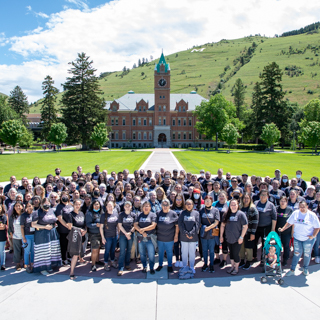Public Talks & Events at CoLang 2022

All talks and events listed on this page are free and open to the public!
Language Reclamation and Beyond

The talk series "Language Reclamation and Beyond" is co-sponsored by Humanities Montana.
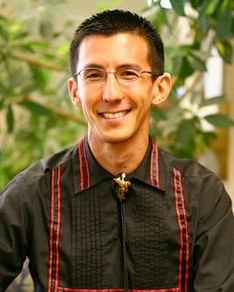
Keynote: "Language Reclamation and Relational Accountability" by Wesley Leonard
Monday, June 13 (10:15-11:30), ALI Auditorium, Education building
Language reclamation is an approach to Indigenous language revitalization that identifies and responds to the core causes of community language shift, and that at all stages is embedded in community needs, wellbeing, and goals. Within a reclamation framework, Indigenous approaches to defining and relating to “language” (What does language represent?) become the foundation for planning, doing, and assessing language work. Similarly, Indigenous research methods and other protocols that support Indigenous ways of being and knowing become central. In this lecture, I outline several major points about language reclamation and draw upon my experiences as a Miami person who became a linguist to support my community’s language efforts to consider how a reclamation framework might apply to major themes being collaboratively explored at CoLang. These include complex questions surrounding Indigenous language work about who plays what role(s), how various tools and technologies are leveraged, and especially what the goals of language work should be and how we can ensure that our efforts align with those goals. I focus in particular on how the concept of relational accountability, which is central to language reclamation, can be a guide for engaging the kinds of issues raised above.
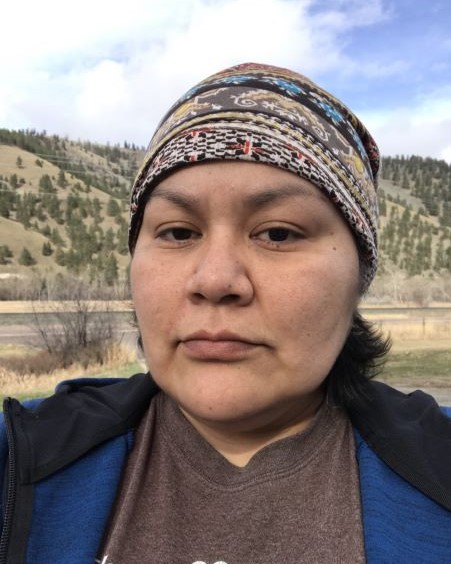
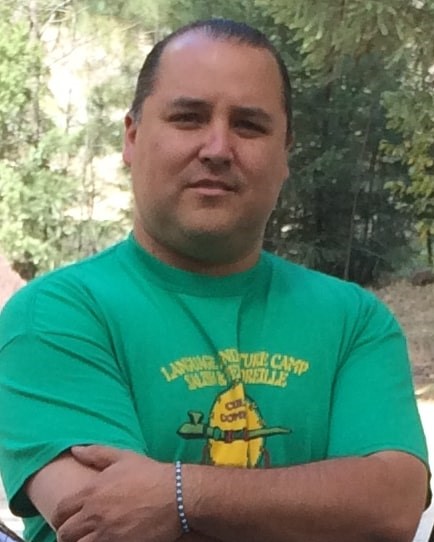
"Séliš & Ql̓ispé Language Efforts: Past and Present" by Chaney Bell & Melanie Sandoval
Monday, June 13 (1-2pm), ALI Auditorium, Education building
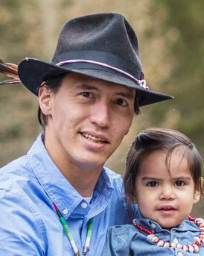
"Niipáítapiiyssin, nitsiníkssin" by Jesse DesRosier
Tuesday, June 14 (1-2pm), ALI Auditorium, Education building
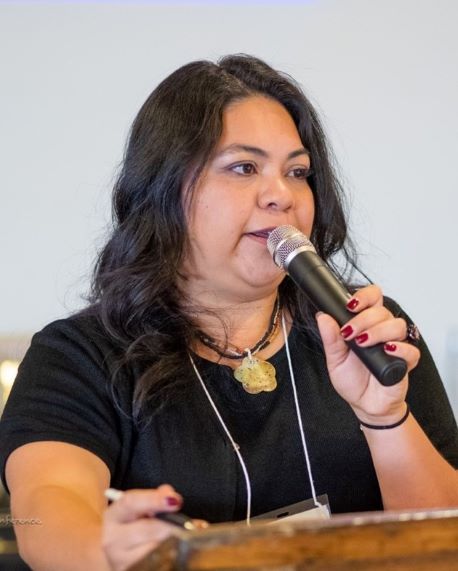
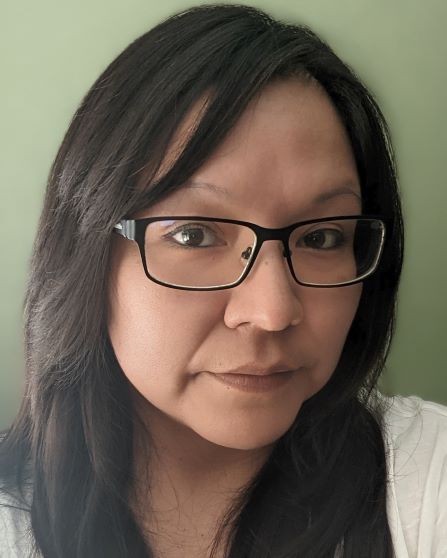
Panel: “Intellectual Merit and Broader Impacts” by Adrienne Tsikewa with panelist Carly Tex
Wednesday, June 15 (1-2pm), ALI Auditorium, Education building
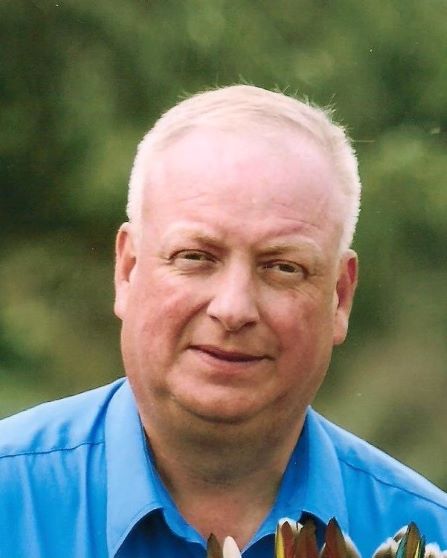
"Apsáalooke (Crow Indian) Astronomy and Lifeways" by Tim McCleary
Thursday, June 16, 1-2pm in the ALI Auditorium, Education building
For centuries the Apsáalooke or Crow people of southeastern Montana have kept a careful watch on the heavens above them—particularly the cycles and movements of the stars, sun, moon and planets. Their interpretations of these cosmic phenomena have shaped the principles by which the Crow people live, providing a sense of right and wrong and an attendant set of values and ethics. This presentation will explore the Crow cultural concepts of astronomy.
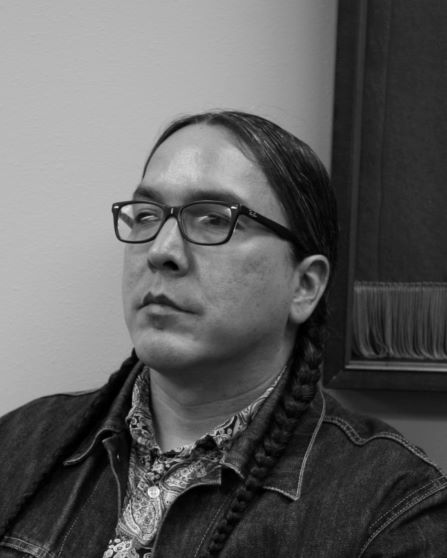
"ʔɔʔɔ́ɔ́ɔ́naakíitʔɔ" by Sean Chandler
Friday, June 17 (1-2pm), ALI Auditorium, Education building
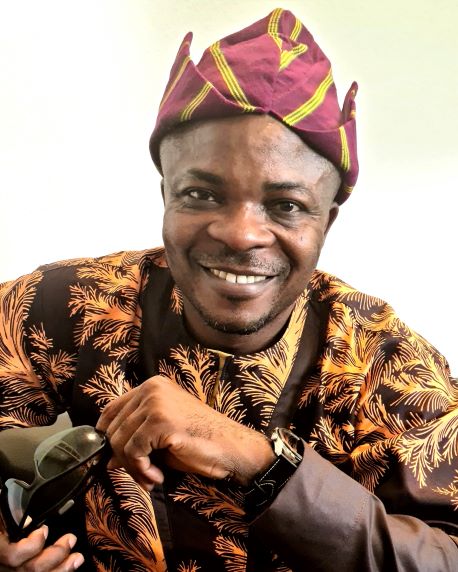
"Community Collaboration in Documenting Indigenous Sign Languages in Africa" by Emma Asonye
Monday, June 20, 1-2pm in the ALI Auditorium, Education building
One of the latest language documentation innovations is the launch of Indigenous Hands (iHands) SignApp - a product of years of documenting indigenous signed languages in Africa, through community collaboration. Indigenous Hands was born out of the need to bridge the communication gap between deaf children and their families and to create early sign language access for deaf children born in isolated deaf communities. This presentation discusses the unique experiences I had with community collaboration and teamwork in documenting diverse signed languages in Africa, that led to the creation of Indigenous Hands SignApp, explores the functionalities of the app, and highlights how each community responds to language documentation.
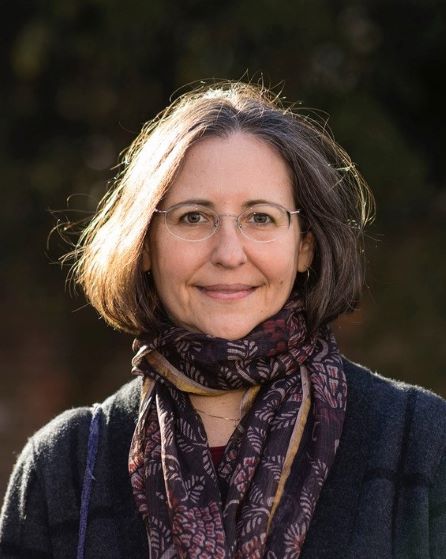
"The Story of the Hebrew Revival, Starting with a Beleaguered Diasporic Minority and Ending with a Dance Party" by Lise Dobrin
Tuesday, June 21, 1-2pm in the ALI Auditorium, Education building
The revival of Hebrew in the modern state of Israel is often held up as a model case for activists, offering hope that language revitalization is a realizable dream. But the Hebrew revival is not the straightforward story of determined work toward a goal of complete linguistic recovery that it is sometimes presented to be; it has a complicated history of near misses, difficult choice points, faulty turns, and unforeseen consequences that is still unfolding today. In this presentation I retell the story of the Hebrew revival in a way that is informed by literature from sociolinguistics, linguistic anthropology, and Jewish studies to speak to anyone with an interest in the cultural dimensions of language revitalization. While the nature of contemporary Hebrew as structurally mixed is now well recognized, the multivalent social results of the Hebrew revival within a wider ecology of Jewish linguistic life has received less attention. On the one hand, there is no way to separate the revival of Hebrew from the reconfiguration of the Yiddish-speaking world over the same time period, or from the powerful institutional interests of the Israeli state. On the other hand, there continues to be a huge Jewish diaspora whose desire to define and embrace an identity in relation to ancestral languages they no longer speak has been a source of endless reflection and creativity. At the deepest level, the question modern Jewish linguistic history presents for language and culture workers is not “How do you revitalize a language?”, but rather “How do those who treasure their ancestral languages engage with them to generate satisfying, distinctive cultural lives?”
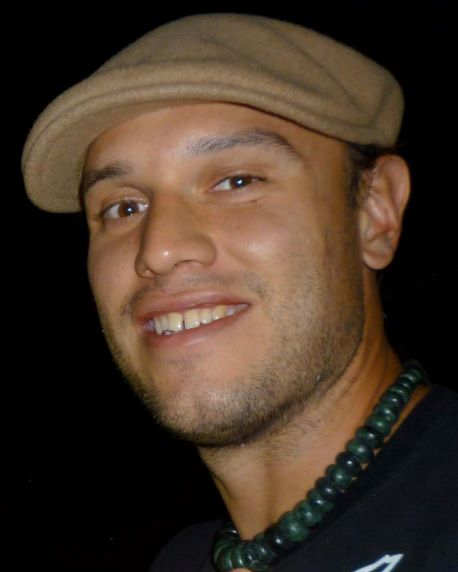
"Data Worth a Thousand Words: Traditional Storytelling with Modern Methods" by Makha Blu Wakpa
Wednesday, June 22, 1-2pm in the ALI Auditorium, Education building
Sustaining successful language revitalization programs often requires funding and reporting. As part of an exercise to help decolonize these requirements, we will explore reframing our worldviews and leveraging a seemingly colonial process into something transformative to benefit our language programs. Centering our ancestral practices of data collection and storytelling will guide us in borrowing proven strategies from the software industry. Together, we will investigate how we can remain grounded in our cultures, sustain funding for our programs, and integrate best practices from high tech companies to hunt and gather storytelling data
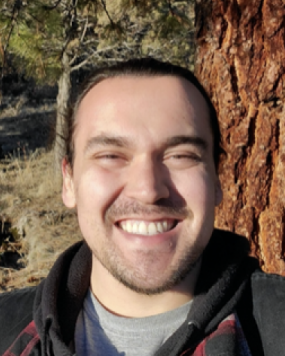
"Strengthening Tribal Sovereignty through Language Revitalization" by Joe Dupris
Thursday, June 23, 1-2pm in the ALI Auditorium, Education building
Poetry Night
One of the CoLang special events is Poetry Night on Monday, June 13, 2022 at 7pm, at ALI Auditorium, University of Montana. Ofelia Zepeda (Tohono O'odham linguist and poet) is our featured poet. She will be reading her poetry and signing books at the event.
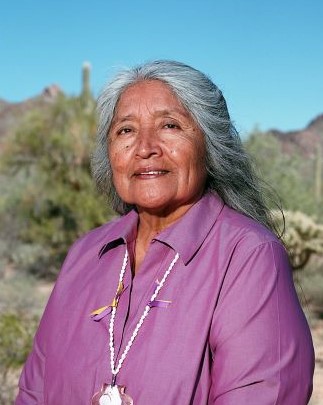 Ofelia Zepeda is a Poet Laureate of Tucson, Regents’ Professor of linguistics at the University of Arizona, director of the American Indian Language Development Institute, and the recipient of a MacArthur Fellowship for her work in American Indian language education. She is the current editor of Sun Tracks, which was launched in 1971 and is one of the first publishing programs to focus exclusively on the creative works of Native Americans.
Ofelia Zepeda is a Poet Laureate of Tucson, Regents’ Professor of linguistics at the University of Arizona, director of the American Indian Language Development Institute, and the recipient of a MacArthur Fellowship for her work in American Indian language education. She is the current editor of Sun Tracks, which was launched in 1971 and is one of the first publishing programs to focus exclusively on the creative works of Native Americans.
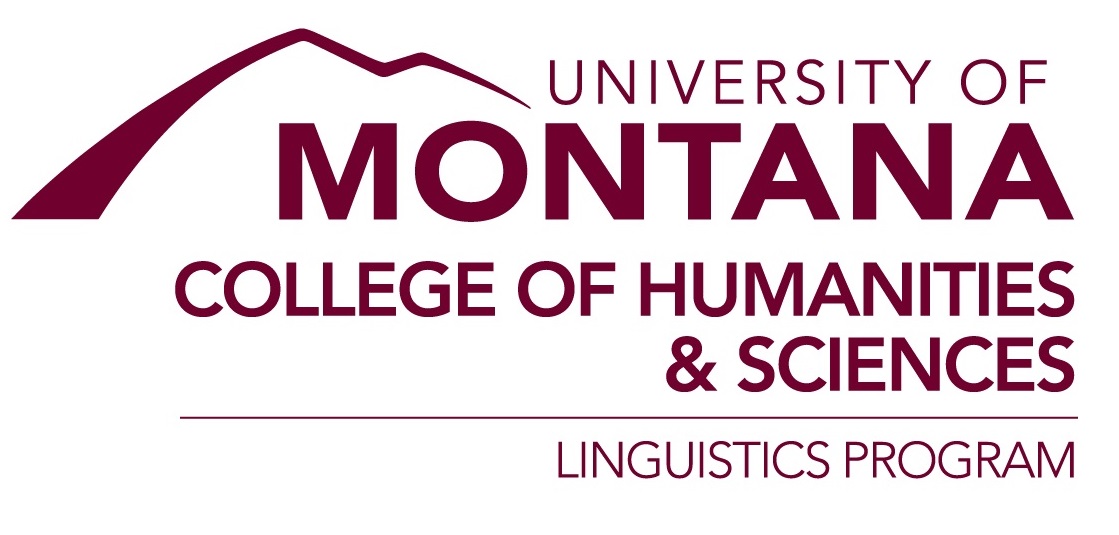 Sponsored by: The Department of Anthropology & Linguistics Program
Sponsored by: The Department of Anthropology & Linguistics Program
Movie Night
 Movie Night is sponsored by the Smithsonian Center for Folklife & Cultural Heritage
Movie Night is sponsored by the Smithsonian Center for Folklife & Cultural Heritage
Tuesday, June 14, 6:30-9:30 PM, University Center Theater
Following the film, Hali Dardar from the Smithsonian Center for Folklife and Cultural Heritage will host a discussion and Q&A with Jesse Asinai’poyi DesRosier, the film's language coach, on language reclamation and representation in the film. Registration for CoLang is not required to attend this event. Please arrive early as seating is limited and will be first come, first serve.
About the Film
Sooyii film trailer
Sooyii (2022, United States, 80 min.)
Dir. Krisztian Kery. In Blackfoot and Shoshone with English subtitles.
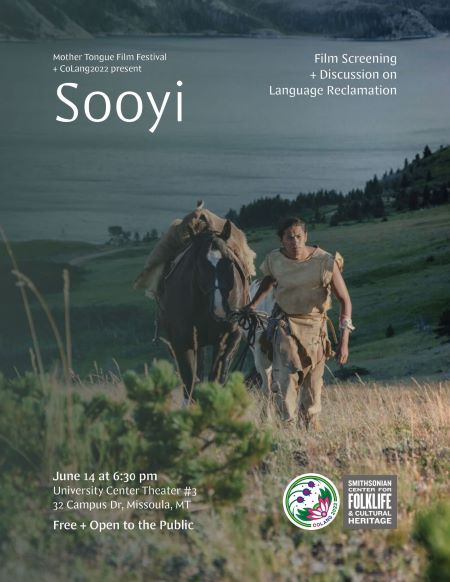 In early eighteenth-century North America, European invaders made their presence known to most of the Indigenous populations. However, some people in the north have remained untouched. The Pikuni (Blackfeet) Nation are among them. A group of Shoshone Warriors maliciously infect a Pikuni village with smallpox using a trick they learned from European traders: passing on infected goods. To the Pikuni, this new and unseen killer is an unstoppable curse. Older Brother, a young Pikuni man, is strangely spared and struggles to understand why. In a state of hopelessness, he tries to infect himself but then encounters a Shoshone woman fleeing from her white captors. He is faced with a terrible dilemma: protect her or trade her back to her captors to attain the one thing that might give other Pikuni villages a fighting chance?
In early eighteenth-century North America, European invaders made their presence known to most of the Indigenous populations. However, some people in the north have remained untouched. The Pikuni (Blackfeet) Nation are among them. A group of Shoshone Warriors maliciously infect a Pikuni village with smallpox using a trick they learned from European traders: passing on infected goods. To the Pikuni, this new and unseen killer is an unstoppable curse. Older Brother, a young Pikuni man, is strangely spared and struggles to understand why. In a state of hopelessness, he tries to infect himself but then encounters a Shoshone woman fleeing from her white captors. He is faced with a terrible dilemma: protect her or trade her back to her captors to attain the one thing that might give other Pikuni villages a fighting chance?
Go to Other Events page
